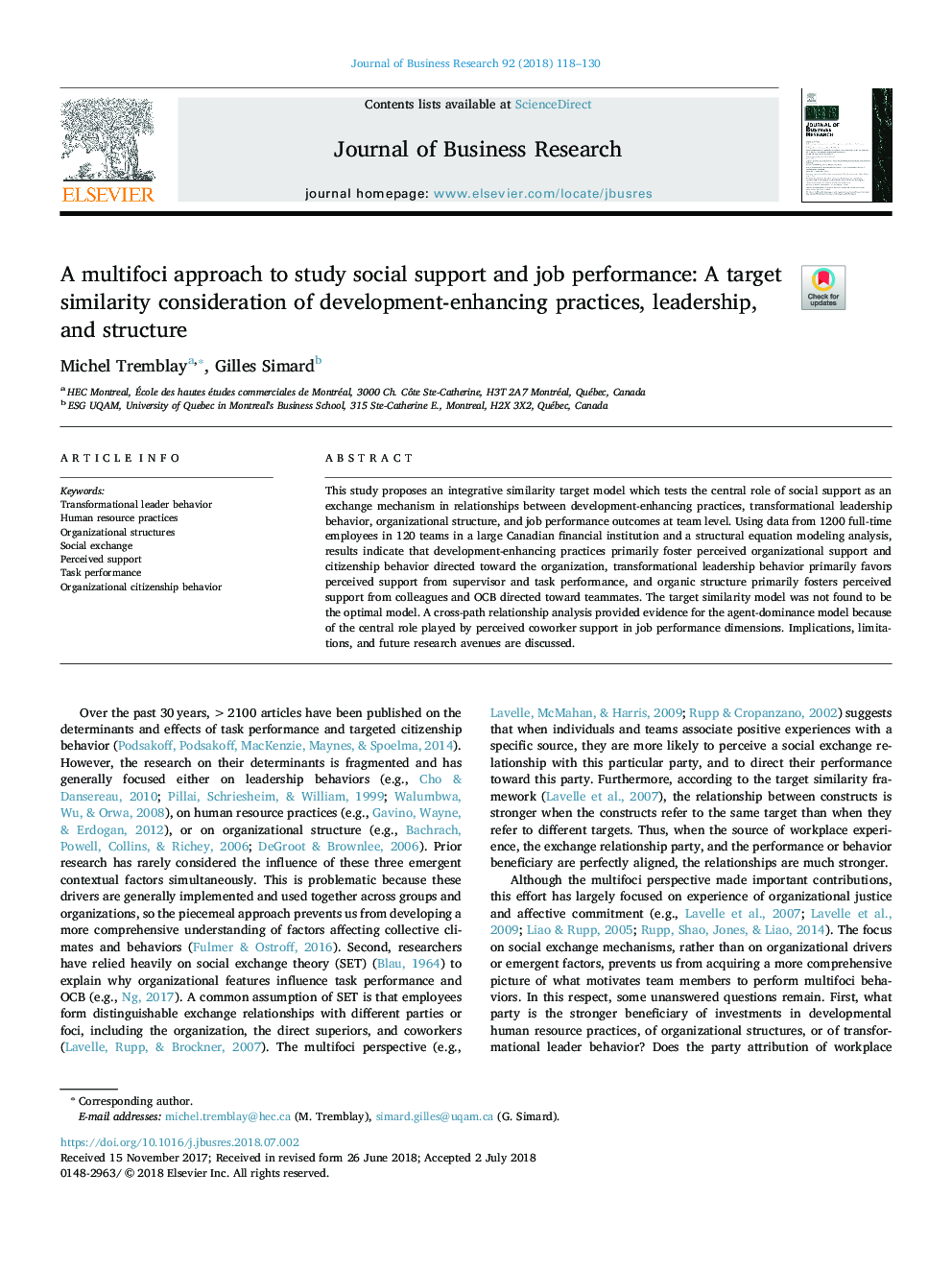| Article ID | Journal | Published Year | Pages | File Type |
|---|---|---|---|---|
| 7424872 | Journal of Business Research | 2018 | 13 Pages |
Abstract
This study proposes an integrative similarity target model which tests the central role of social support as an exchange mechanism in relationships between development-enhancing practices, transformational leadership behavior, organizational structure, and job performance outcomes at team level. Using data from 1200 full-time employees in 120 teams in a large Canadian financial institution and a structural equation modeling analysis, results indicate that development-enhancing practices primarily foster perceived organizational support and citizenship behavior directed toward the organization, transformational leadership behavior primarily favors perceived support from supervisor and task performance, and organic structure primarily fosters perceived support from colleagues and OCB directed toward teammates. The target similarity model was not found to be the optimal model. A cross-path relationship analysis provided evidence for the agent-dominance model because of the central role played by perceived coworker support in job performance dimensions. Implications, limitations, and future research avenues are discussed.
Keywords
Related Topics
Social Sciences and Humanities
Business, Management and Accounting
Business and International Management
Authors
Michel Tremblay, Gilles Simard,
